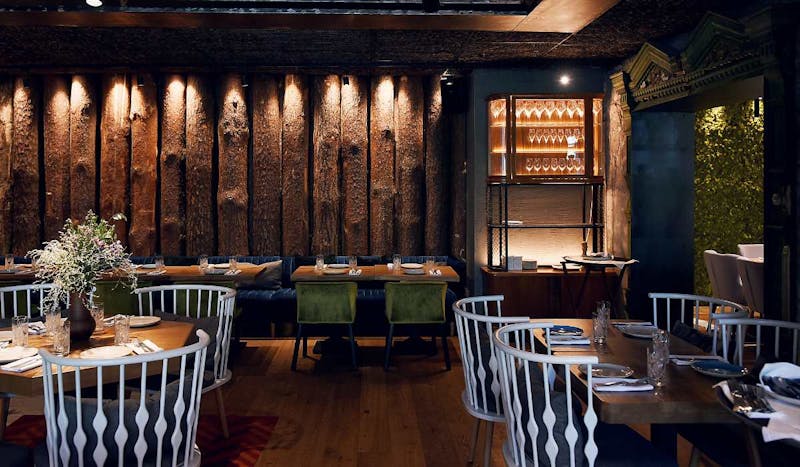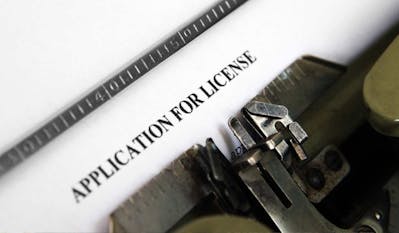Why Licensing Matters in Hong Kong
Regulatory Basis
Restaurants operate under the Public Health and Municipal Services Ordinance (Cap. 132) and the Food Business Regulation (Cap. 132X), which set hygiene, safety, and licensing requirements.
Food Traceability
The Food Safety Ordinance (Cap. 612) requires registration of food importers and distributors and keeping movement records.
Current Market Bar
The Michelin Guide Hong Kong & Macau 2025 lists 76 starred restaurants in Hong Kong, a clear signal of quality expectations.
Steps for Registration and Licensing
Step 1: Incorporate Your Company
Register a Hong Kong company and obtain your Certificate of Incorporation and Business Registration Certificate.
You will also choose a name, prepare Articles of Association, and set up a bank account.
Need help with company setup and bank account support? Air Corporate can incorporate your entity fast and keep you compliant from day one.
Step 2: Choose Compliant Premises
Your site must be suitable under building, fire, planning, and lease conditions. Authorities involved are:
- Food and Environmental Hygiene Department (FEHD) – health and hygiene
- Buildings Department (BD) – building safety
- Fire Services Department (FSD) – fire safety
Before you sign, check user restrictions in the Government lease, any Town Planning Board needs, and whether the space can support separate ventilation for kitchen, toilets, and seating. FEHD’s restaurant guide explains what to include in layout plans and how departments assess sites.
Step 3: Apply for a General Restaurant License (GRL)
Where: FEHD
How: Submit Form FEHB 94 (“Application for Food Business License”) with three scaled layout plans (min 1:100).
If your premises are in a private building, include FEHB 192 (self-declaration on Government lease compliance).
Documents to Prepare
- FEHB 94 (application) and FEHB 192 (lease compliance, if applicable)
- 3 copies of scaled layout plans showing kitchen, prep areas, storage, seating, toilets, etc.
- Company documents (e.g., Certificate of Incorporation, Business Registration Certificate)
- Ventilation plan and specs if required by FSD later in the process
- Hygiene Manager/Supervisor nomination before license issue (see “Staff hygiene” below)
Once you’ve submitted your application and plans, FEHD will do a quick review to make sure everything’s in order.
The department then passes your documents to the Buildings Department (BD) and the Fire Services Department (FSD) for their own checks and site visits.
If everything looks acceptable, you’ll be invited to an Application Vetting Panel (AVP) meeting, which is usually within about 20 working days from acceptance.
Representatives from all the departments join this session so you can discuss any issues together and understand what still needs to be fixed.
After the AVP, the FEHD sends you a Letter of Requirements listing the items you must complete before the license can be granted. From there, you’ve got two tracks:
- Provisional License: If you’ve already satisfied the essential requirements and paid the fee, you can get a six-month provisional license right away. In most cases, if you apply over the counter and your paperwork checks out, it’s issued within one working day (or within a week if you applied by post).
- Full License: Once all outstanding requirements have been met and verified, FEHD issues the full restaurant license. Their official service pledges give a general idea of how long each stage takes.
You can also opt into the Professional Certification System (PCS), which allows certain qualified professionals, such as authorized persons or registered engineers, to certify compliance on your behalf. It’s an optional fast-track route that can save weeks if your site is ready and you want to open sooner.

Step 4: Have the Right Permits
| Permit / License | Issued By | Key Points |
|---|---|---|
| Liquor License | Liquor Licensing Board (LLB) / FEHD Secretariat | Usually for bona fide restaurants; handled with FEHD support. |
| Restricted Foods Permits | FEHD | Required for non-bottled drinks, frozen confections, raw meat/fish, etc. |
| Composite Restricted Foods Permit (2025 onward) | FEHD | Effective 1 Jan 2025; covers multiple restricted foods (except vending machines). Fee ≈ HK$810. |
| Bakery / Food Factory / Fresh Provision Shop Licenses | FEHD | Needed for food production or retail beyond a standard restaurant scope. |
| Import License for Frozen/Chilled Meat & Poultry | FEHD | Required under Cap. 60; importers/distributors must also register under Cap. 612. |
| Outside Seating Accommodation (OSA) | FEHD | Apply via Form eFEHB 197; FEHD coordinates referrals. |
| Karaoke Establishment Permit | FEHD (for restaurants) / HAD (for others) | Separate permit with fire/building safety checks. |
Key 2024–2025 Compliance Changes
- Light Refreshment Restaurant (LRR) Rules: Since 1 Mar 2023, scope depends on cooking method (e.g., boiling, steaming, simple frying) rather than food item.
- Single-Use Plastic Ban (Phase 1): In force since 22 Apr 2024. Most disposable plastic cutlery, straws, stirrers, and EPS tableware banned for dine-in and takeaway. Plan non-plastic alternatives (GovHK 2025 update).
Staff Hygiene and Food Safety in Hong Kong Restaurants
Every licensed restaurant in Hong Kong must follow strict hygiene standards set by the Food and Environmental Hygiene Department (FEHD).
Hygiene Manager / Hygiene Supervisor Scheme
To maintain food safety, each restaurant must appoint qualified staff:
- Large or high-risk premises: one Hygiene Manager (HM) and one Hygiene Supervisor (HS)
- Small or low-risk restaurants: at least one HM or HS
Training certificates and nomination forms are verified by FEHD before the restaurant license is issued.
Food Importer / Distributor Registration
If your restaurant imports or distributes food, you must register under the Food Safety Ordinance (Cap. 612) and keep movement records for full traceability.
Hiring Local and Foreign Staff in Hong Kong’s (Food and Beverage) Industry
Prioritizing Local Talent
Under Hong Kong’s labour policies, restaurant operators must make genuine efforts to hire local workers before applying to bring in foreign staff.
Job openings should be advertised locally, and employers must keep records to show proof of recruitment attempts.
Enhanced Supplementary Labour Scheme (ESLS)
For roles where local manpower is insufficient—such as waiters, kitchen assistants, or junior cooks—restaurants can apply under the Enhanced Supplementary Labour Scheme (ESLS).
The scheme allows the importation of foreign catering staff, provided the business maintains at least a 2:1 ratio of full-time local to imported workers and pays no less than the median wage for the role.
An Employees Retraining Levy applies to each approved worker.
Hiring Skilled Professionals (GEP)
For higher-skilled positions like executive chefs, restaurant managers, or F&B specialists, employers may sponsor candidates under the General Employment Policy (GEP) administered by the Immigration Department.
Applicants must demonstrate relevant experience, recognized qualifications, and a confirmed employment offer from a Hong Kong company.
General Restaurant License vs Light Refreshment Restaurant
| Item | General Restaurant License (GRL) | Light Refreshment Restaurant (LRR) |
|---|---|---|
| Typical scope | Full meals | Light items; scope by cooking method (since Mar 2023) |
| Common use | Full kitchen / hot dishes | Simple prep / limited methods |
| Add-ons | Liquor, OSA, restricted foods etc. | Some add-ons possible (subject to method) |
| Reference | FEHD Restaurant Guide | FEHD LRR Update (2023) |
Typical Timelines (FEHD Service Pledges)
| Stage | Expected Time |
|---|---|
| AVP Meeting | Within 20 working days after application acceptance |
| Provisional License | Within 1 working day (over counter) or 7 days (by post); valid 6 months |
| Full License | After full compliance confirmed (see FEHD service pledges) |
Checklist of Required Documents & Plans
- FEHB 94: Application for Food Business License
- FEHB 192: Lease compliance declaration (for private buildings only)
- Layout plans: Three copies drawn to scale (minimum 1:100) showing kitchen, seating, toilets, and storage areas
- Ventilation plan and specifications: If requested by the Fire Services Department (FSD) or Buildings Department (BD)
- Company documents: Certificate of Incorporation (CI) and Business Registration Certificate (BRC)
- Hygiene Manager or Supervisor nomination: Include training course certificates
- Additional permit forms: For restricted food, liquor license, or outside seating accommodation (OSA), if applicable
- Certificates of Compliance: As listed in the FEHD’s Letter of Requirements for your provisional license
Operating Add-Ons That Boost Restaurant Revenue in Hong Kong
Liquor Service
If you plan to serve alcohol, check early whether your location meets Liquor Licensing Board (LLB) requirements on noise levels, neighbourhood sensitivity, and business hours.
A liquor license is only granted to bona fide restaurants, and getting this right from the start helps avoid rework during inspections.
Outside Seating (OSA)
Outdoor dining remains a strong revenue driver in Hong Kong’s restaurant scene.
To offer alfresco service, apply for Outside Seating Accommodation (OSA) through the Food and Environmental Hygiene Department (FEHD).
It’s best to plan for this during the design stage, making sure utilities, exits, and customer circulation align with your main layout.
Karaoke or Live Entertainment
Adding karaoke can attract evening crowds, but it also triggers extra fire safety and building compliance requirements.
Licensed restaurants need a Karaoke Establishment Permit from the FEHD, while other venues apply through the Home Affairs Department (HAD).
Environmental Compliance for Restaurant Fit-Out and Purchasing
From April 2024, Hong Kong’s single-use plastic tableware ban has been in effect, restricting disposable plastic cutlery, straws, stirrers, and foam containers for both dine-in and takeaway.
Under the Environmental Protection Department (EPD) and Digital Policy Office 2025 guidelines, restaurants must switch to approved non-plastic alternatives such as paper, bamboo, or reusable tableware.
Keep proper supplier records showing what sustainable products you use—these help with internal training, audits, and FEHD inspections.
Choosing eco-compliant materials early in your fit-out also reduces the risk of rework once your restaurant opens.
Insurance and Funding for Restaurants in Hong Kong
Every restaurant should carry the right insurance from day one. The key covers include:
- Public liability insurance: protects against customer injury or property damage claims.
- Property all-risks insurance: covers fire, flooding, or kitchen equipment damage.
- Business interruption insurance: helps replace lost income during forced closures.
When it comes to funding, compare SME loans and government grants that match your fit-out and licensing milestones.
Local banks and fintech lenders often provide dedicated F&B business financing with flexible repayment options.
Looking to register a restaurant? Get your restaurant incorporated with Air Corporate today and get your business off the ground in under 48 hours.







